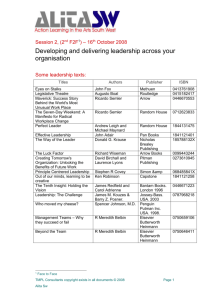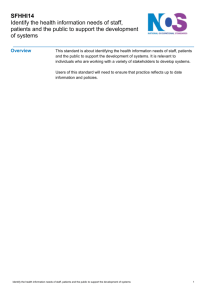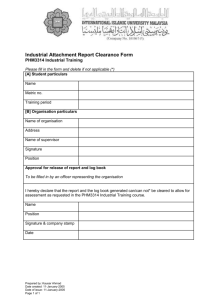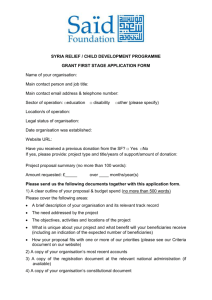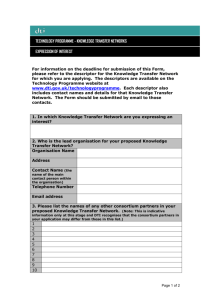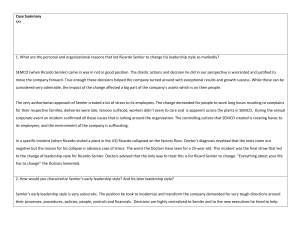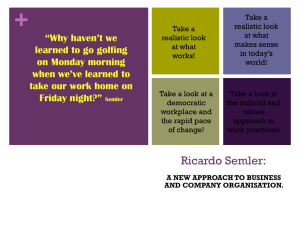details - Wales Management Council
advertisement
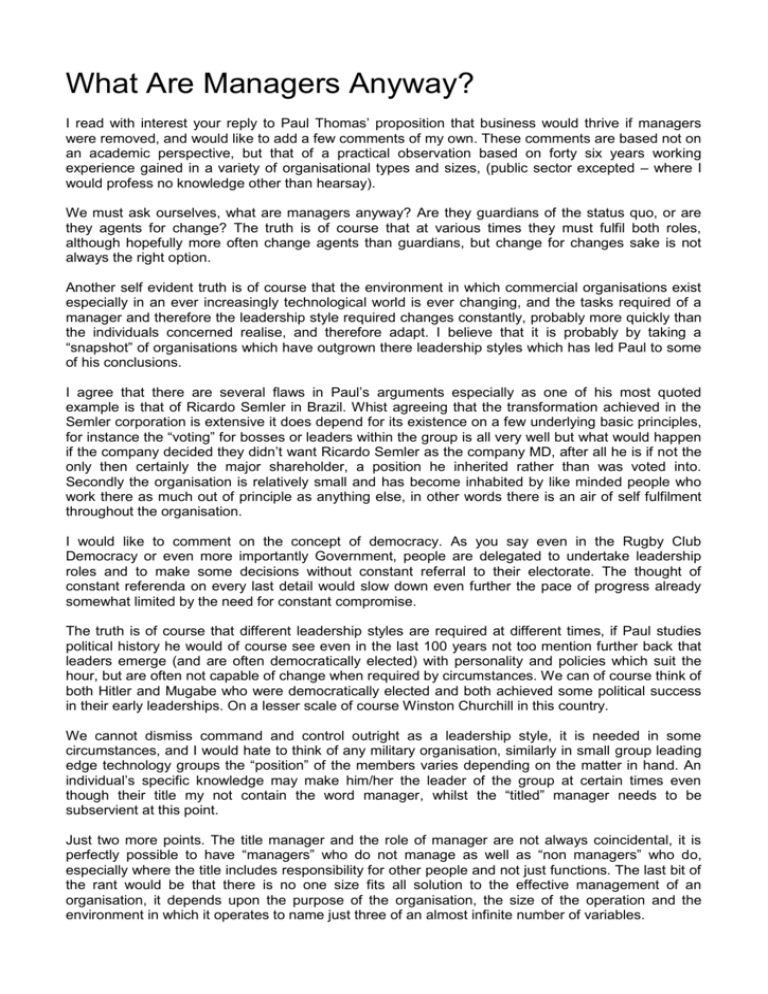
What Are Managers Anyway? I read with interest your reply to Paul Thomas’ proposition that business would thrive if managers were removed, and would like to add a few comments of my own. These comments are based not on an academic perspective, but that of a practical observation based on forty six years working experience gained in a variety of organisational types and sizes, (public sector excepted – where I would profess no knowledge other than hearsay). We must ask ourselves, what are managers anyway? Are they guardians of the status quo, or are they agents for change? The truth is of course that at various times they must fulfil both roles, although hopefully more often change agents than guardians, but change for changes sake is not always the right option. Another self evident truth is of course that the environment in which commercial organisations exist especially in an ever increasingly technological world is ever changing, and the tasks required of a manager and therefore the leadership style required changes constantly, probably more quickly than the individuals concerned realise, and therefore adapt. I believe that it is probably by taking a “snapshot” of organisations which have outgrown there leadership styles which has led Paul to some of his conclusions. I agree that there are several flaws in Paul’s arguments especially as one of his most quoted example is that of Ricardo Semler in Brazil. Whist agreeing that the transformation achieved in the Semler corporation is extensive it does depend for its existence on a few underlying basic principles, for instance the “voting” for bosses or leaders within the group is all very well but what would happen if the company decided they didn’t want Ricardo Semler as the company MD, after all he is if not the only then certainly the major shareholder, a position he inherited rather than was voted into. Secondly the organisation is relatively small and has become inhabited by like minded people who work there as much out of principle as anything else, in other words there is an air of self fulfilment throughout the organisation. I would like to comment on the concept of democracy. As you say even in the Rugby Club Democracy or even more importantly Government, people are delegated to undertake leadership roles and to make some decisions without constant referral to their electorate. The thought of constant referenda on every last detail would slow down even further the pace of progress already somewhat limited by the need for constant compromise. The truth is of course that different leadership styles are required at different times, if Paul studies political history he would of course see even in the last 100 years not too mention further back that leaders emerge (and are often democratically elected) with personality and policies which suit the hour, but are often not capable of change when required by circumstances. We can of course think of both Hitler and Mugabe who were democratically elected and both achieved some political success in their early leaderships. On a lesser scale of course Winston Churchill in this country. We cannot dismiss command and control outright as a leadership style, it is needed in some circumstances, and I would hate to think of any military organisation, similarly in small group leading edge technology groups the “position” of the members varies depending on the matter in hand. An individual’s specific knowledge may make him/her the leader of the group at certain times even though their title my not contain the word manager, whilst the “titled” manager needs to be subservient at this point. Just two more points. The title manager and the role of manager are not always coincidental, it is perfectly possible to have “managers” who do not manage as well as “non managers” who do, especially where the title includes responsibility for other people and not just functions. The last bit of the rant would be that there is no one size fits all solution to the effective management of an organisation, it depends upon the purpose of the organisation, the size of the operation and the environment in which it operates to name just three of an almost infinite number of variables. Hywel Williams AIDC Centre for Wales Faculty of Advanced Technolgy (J454) University of Glamorgan Pontypridd CF37 1DL Tel:- 01443-654542 Fax:- 01443-654087 email:- hwillia5@glam.ac.uk web:- (English) www.aidcwales.org web:- (Cymraeg) www.aidccymru.org



